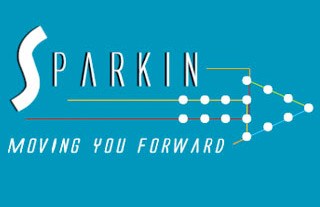How to positively manage the effects of sudden changes in a new job
I regularly receive calls that talk to an individual having started a new job and a few months in, it is unrecognizable from expectations, not simply because of a changed challenge but in terms of what was promised about people, the value of their expertise in the agency/company, the culture, resources, leadership and clients. The boss that hired you leaves, the client it turns out is completely unreasonable and/or not embracing the value your expertise can bring and/or, the function you represent period, for example strategic planning. And, the department of which you are a part, doesn’t seem to have any practical leadership. These are just a few examples of challenges I’ve heard someone newly employed describe to me as they asked what they should do.
Now, it’s true, situations in the agency and business world can and do change very quickly. The role you were hired for can become manifestly different. Where you confront such a situation in a new role (1-3 months) you should ask yourself the following three questions:
Is the change significant enough that you believe you cannot be effective in the new role?
Can you through discussion alter the changed circumstances so that you can be effective?
Is there an opportunity for professional progression/a chance to develop your expertise even with the changed circumstances?
If the answer to all the above questions is “no,’ you should leave the role. If you take no action you are very likely going to go around in circles as you fail to direct your career. A better approach, whether you leave depends on rationalizing a course of action based in my opinion, on three factors: Your sanity; Your reputation; Your resume.
Sanity
More important than your reputation or resume is your state of mental health. Being in a situation for which you are unprepared, unsuited or simply don’t desire can adversely affect your mental state of mind. Extreme stress arises due to a complete lack of support or from a role or circumstances significantly different from those you believed you were being hired for. In such a situation if you cannot, even after talking with someone you trust, get clarity or assurance that the job you are being asked to perform will, in some timeframe align with that that you were hired for, then you should seriously consider leaving the agency.
Reputation
Whenever you are delivering a product or service you have been paid to deliver, the consistency and quality of that delivery is what your reputation is in large part based. Clearly other people’s perception of you are based on other factors too significantly, being seen to be easy to work with/cultural fit. A positive/can do attitude is the ally of a great reputation but even that is not enough if the quality and consistency of your work is not up to par. So whenever there are persistent factors that are out of your control and you cannot resolve, that will materially affect the consistent quality of your work, that would also be a reason either to change your current role with your current employer or to leave. Your reputation takes time to build but it can be damaged very quickly. You cannot afford to persist with anything that damages your ability to be the best you can be.
Resume
I’m often asked, even when an individual is unhappy and is struggling in their new role, ‘Should I stay another six months?’ I’m being asked this question even though there are no obvious concerns about mental health or loss of reputation that is, they can do the job but they are not happy or motivated by it. They are considering leaving their job but hesitating because of how this might look on their resume, their leaving a job after a short period of time. Clearly, if you have left your last two jobs within six months it becomes more important to prove you can commit. The question also arises whether the individual is simply ‘unlucky’ in their job selection or failing to properly qualify the jobs they are subsequently accepting. Irrespective, if what’s at stake is your state of mental health or reputation for delivering great work, these are compelling reasons for change, irrespective of how your resume looks.








